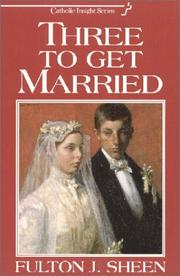By Mary C. Tillotson
 |
Blessing of the Young Couple Before Marriage
by Pascal Dagnan Bouveret, 1880
Public Domain |
After complaining about all the “
marriage is hard” reminders
I got during my engagement and rounding up
two other married
women to write
notes of encouragement to young, frightened brides, I found myself typing an email
to a college friend of mine, telling her that marriage is, of all things, hard.
Perhaps I ought to forgive the older wives. Perhaps, like I was, they were trying
to be helpful.
Most young brides are naive and doe-eyed about marriage, and
I think we should let them begin their marriage doe-eyed and trusting! Marriage
is a risk, and new wives will learn soon enough that love this deep carries the
potential to be hurt this deeply. Don’t lecture them with horror stories or
pass on your jaded view of marriage. It’s wrong to needlessly undermine their
ability to love and trust their new husbands.
In college, worried about my ability to be a decent mother
someday, I asked a mother of six to teach me how to change a diaper. While we
were chatting over her wiggly six-month-old, she told me that no matter how
prepared you are for motherhood, 90 percent of it you make up on the spot. I
think the same is true of marriage. At least so far, mine’s been like that.
It’s impossible to describe to a new bride what marriage
really entails, because some things can only be learned through experience.
Even if it were possible to communicate to the new bride
exactly how it feels to confront one’s own pettiness (and that of
one’s spouse) in the inevitable argument over how to fold towels, what would
that accomplish? She will still have that argument. And she will have it with
her husband, not anyone else’s; she will
bring
her personality and experience
to the table, not anyone else’s. She and her new husband need to learn how to
make
their relationship work, not
anyone else’s.
I think young brides do need to hear that marriage is hard, but
not from jaded or micromanaging wives. Marriage is hard sometimes, and it’s
startling, at least at first, and it’s comforting to know that there’s no need
to panic. Here is what I started writing to my friend:
Marriage is going to
be difficult in ways you can’t imagine right now. It’s going to test you and
try you and stretch you and call you to a kind of love that doesn’t even make
sense to you, at least right away. You’re going to become painfully aware of
your own immaturity and pettiness, and of your husband’s. You will find
yourself failing over and over, and him, too; you will be tempted to despair
and wonder if you made the right decision.
But don’t dwell on
that right now. Right now, be joyful; plan your wedding and look forward to
many long, happy years together. If you both work together and cooperate with
grace, that’s what your marriage will be. Believe in love, because love is
real; you have every reason to believe you will have a great marriage.
Tuck away those
reminders that marriage is hard. Don’t stress yourself out over it. Soon enough
the two of you will hit a bump in the road, and you’ll be surprised that
marriage could be like this. Think back on what you heard, and take courage:
this may be the hardest, most painful thing you’ve been dealt up until now, but
many other women – many other marriages – have dealt with this kind of thing
before. It is normal. Work through it and you will find a kind of love and joy
and peace that you can’t imagine right now.
What do you think? Married women, what advice do you think would be helpful for young brides? Engaged women, what kind of encouragement could you use?
 A little over four years ago, I began a new vocation – wife. Almost three years ago, the vocation of motherhood got added. In preparation for our wedding, my husband and I each chose one book to read on love and/or marriage. I chose Archbishop Fulton Sheen’s Three to Get Married. Best decision ever. I so appreciated Sheen’s gentle but firm exploration of the purpose of marriage and both the beauty and trial most spouses experience sometime between “I do” and “til death do us part.”
A little over four years ago, I began a new vocation – wife. Almost three years ago, the vocation of motherhood got added. In preparation for our wedding, my husband and I each chose one book to read on love and/or marriage. I chose Archbishop Fulton Sheen’s Three to Get Married. Best decision ever. I so appreciated Sheen’s gentle but firm exploration of the purpose of marriage and both the beauty and trial most spouses experience sometime between “I do” and “til death do us part.”




